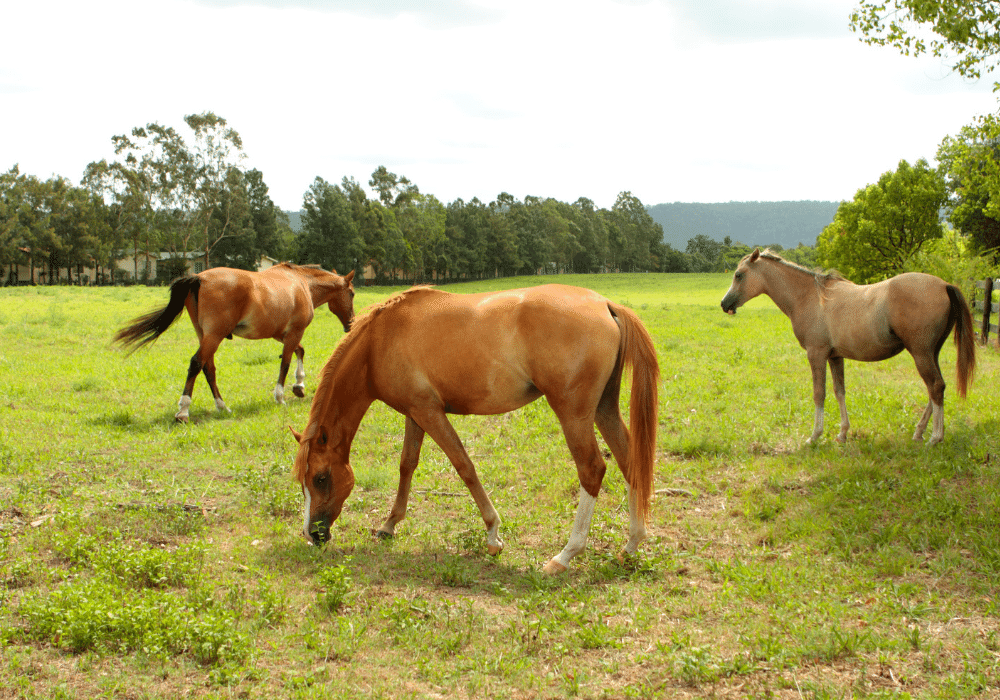Colic is any horse owner's worst nightmare. This incredibly serious condition can be fatal, and time is critical when it comes to identifying and treating this equine health emergency.
It is crucial that horse owners are able to recognise the symptoms of colic in horses, from the most severe symptoms to the very subtle signs. Early recognition and prompt action can significantly impact the horse’s chance of recovery, as well as potentially saving the owner stress, worry and money.
In this post, we will explore the symptoms of colic in horses, and provide guidance on how to best respond if it strikes.
What is Colic in Horses?
Colic is not a specific disease, contrary to popular belief. Instead, it is a collective term encompassing a wide range of gastrointestinal issues. At its most basic, the word ‘colic’ simply means ‘abdominal pain’, and there are various types of colic and causes of this pain.
The Different Types of Colic Include:
- Gas
- Spasmodic
- Impaction
- Displacement
- Torsion
- Strangulation
- Sand
Each type can vary in severity, and it is essential that you immediately contact your equine vet practice if you believe your horse may have colic. You can find out more about the main types of colic in horses by reading our article on the different types of colic in horses.
What are the Symptoms of Colic in Horses?
The symptoms of colic in horses can vary from mild to severe, but the severity of the colic does not always correspond with the severity of the symptoms. For instance, a horse experiencing severe colic can still be displaying relatively mild symptoms, while those which appear to have very severe colic to start with can sometimes be resolved very quickly. Because of this, it is essential that your equine vet practice is contacted as soon as you suspect colic.
The British Horse Society’s “REACT To Beat Colic” campaign provides a useful list of colic symptoms that horse owners should be on the lookout for:
R: Restless or Agitated - attempts to lie down, repeated rolling, unexplained sweating, box-walking
E: Eating less or droppings reduced - or changes in droppings consistency
A: Abdominal Pain - flank watching, pawing, kicking at belly
C: Clinical Changes - increased heart rate, reduced or absent gut sounds, changes in colour of the gums (should normally be salmon pink), skin abrasions over the eyes (indicates the horse has injured itself whilst thrashing around)
T: Tired or Lethargic - lying down more than usual, depressed or dull looking or head lowered
While these are some of the more obvious signs, some horses will only display very subtle symptoms. These might include yawning, muscle tremors or simply appearing ‘off’. Donkeys in particular tend to display only very subtle symptoms of colic. For example, they may lie down more than usual, seem a little quiet, and pass fewer droppings. Read our case study about Martha the donkey to learn more about colic in donkeys and how the Avonvale Equine Vet team helped to treat her impaction colic.
What Causes Colic in Horses?
Colic has a number of different causes, and in many cases, it is hard to determine one cause.
In many cases, colic occurs due to a change in management. A sudden change in diet, turnout time or exercise can upset the digestive tract, leading to abdominal pain.
Digestive disorders such as dental problems or worm burdens can also cause colic. This is why it is essential that you have your horse’s teeth assessed at least once a year, and follow an effective worming program.
Poor feeding practices such as feeding too large quantities or a lack of fibre can lead to digestive upset, which can cause stomach pain.
Finally, colic is often caused by dehydration. This is why it’s essential that you monitor how much your horse is drinking, as dehydration can lead to impactions. Read more here about monitoring your horse’s hydration.
Avonvale Equine Vet Practice
While colic can be incredibly serious, prompt action can drastically improve the chances of recovery.
Avonvale Equine Vet Practice are available 24/7, 365 days of the year for emergency call-outs, including for cases of colic. Our emergency call-outs are covered by our own vets, so you will always see an Avonvale vet no matter what time of day or night you require us. Register your horse, pony, donkey or mule with us today.









